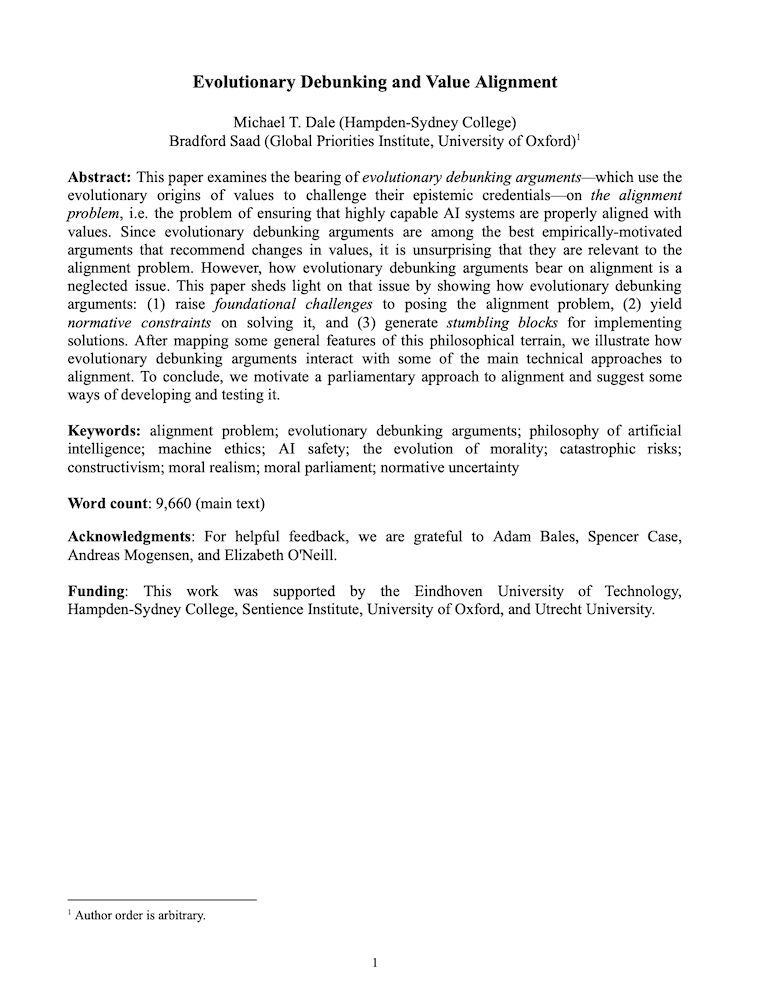Evolutionary debunking and value alignment
Michael T. Dale (Hampden-Sydney College) and Bradford Saad (Global Priorities Institute, University of Oxford)
GPI Working Paper No. 11-2024
This paper examines the bearing of evolutionary debunking arguments—which use the evolutionary origins of values to challenge their epistemic credentials—on the alignment problem, i.e. the problem of ensuring that highly capable AI systems are properly aligned with values. Since evolutionary debunking arguments are among the best empirically-motivated arguments that recommend changes in values, it is unsurprising that they are relevant to the alignment problem. However, how evolutionary debunking arguments bear on alignment is a neglected issue. This paper sheds light on that issue by showing how evolutionary debunking arguments: (1) raise foundational challenges to posing the alignment problem, (2) yield normative constraints on solving it, and (3) generate stumbling blocks for implementing solutions. After mapping some general features of this philosophical terrain, we illustrate how evolutionary debunking arguments interact with some of the main technical approaches to alignment. To conclude, we motivate a parliamentary approach to alignment and suggest some ways of developing and testing it.
Other working papers
Time discounting, consistency and special obligations: a defence of Robust Temporalism – Harry R. Lloyd (Yale University)
This paper defends the claim that mere temporal proximity always and without exception strengthens certain moral duties, including the duty to save – call this view Robust Temporalism. Although almost all other moral philosophers dismiss Robust Temporalism out of hand, I argue that it is prima facie intuitively plausible, and that it is analogous to a view about special obligations that many philosophers already accept…
Heuristics for clueless agents: how to get away with ignoring what matters most in ordinary decision-making – David Thorstad and Andreas Mogensen (Global Priorities Institute, Oxford University)
Even our most mundane decisions have the potential to significantly impact the long-term future, but we are often clueless about what this impact may be. In this paper, we aim to characterize and solve two problems raised by recent discussions of cluelessness, which we term the Problems of Decision Paralysis and the Problem of Decision-Making Demandingness. After reviewing and rejecting existing solutions to both problems, we argue that the way forward is to be found in the distinction between procedural and substantive rationality…
A bargaining-theoretic approach to moral uncertainty – Owen Cotton-Barratt (Future of Humanity Institute, Oxford University), Hilary Greaves (Global Priorities Institute, Oxford University)
This paper explores a new approach to the problem of decision under relevant moral uncertainty. We treat the case of an agent making decisions in the face of moral uncertainty on the model of bargaining theory, as if the decision-making process were one of bargaining among different internal parts of the agent, with different parts committed to different moral theories. The resulting approach contrasts interestingly with the extant “maximise expected choiceworthiness”…

